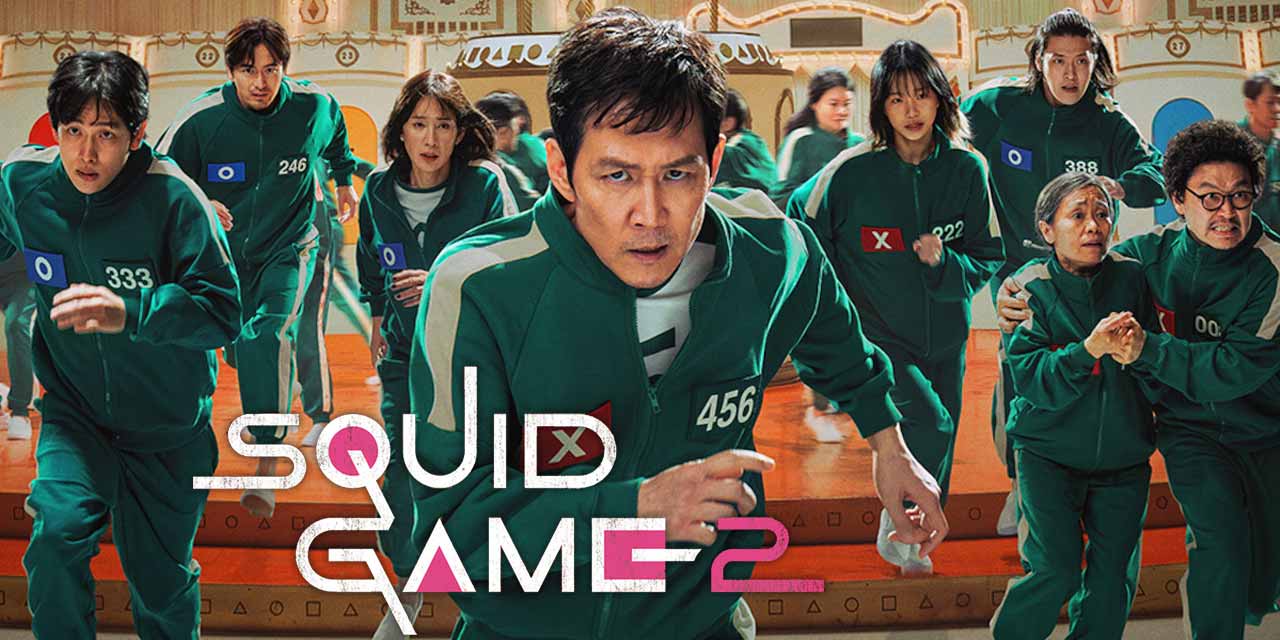By Evi Chrysohery,
Inspired by the recent release of the highly acclaimed second season of Squid Game on December 26th, 2024, the series continues to captivate audiences with its intense suspense, while simultaneously sparking profound social reflections and ethical dilemmas. Squid Game is a South Korean dystopian horror-thriller television series, directed and written by Hwang Dong-Hyuk. The storyline revolves around a clandestine competition in which 456 participants, all of whom are in dire financial straits –some even homeless–, are lured with the promise of resolving their economic problems and improving their lives. The grand prize for the winner amounts to a staggering 45.6 billion won (39,86 million USA $).
The challenges in the competition are based on children’s games, which ultimately prove to be deadly. In the first season, the protagonist, Seong Gi-Hun, portrayed by the actor, Lee Jung-Jae, emerges as the sole winner of the game, while the other 455 participants lose their lives.

In the second season, haunted by the tragic deaths of his fellow competitors –some of them being his friends– and driven by a sense of vengeance on their behalf, the former winner sets out to uncover the organizers of the game. His ultimate goal is to expose their operation and bring an end to the deadly contest. Using the prize money from the game, Seong Gi-Hun hires a team of mobsters and assigns them the mission of locating a man in a suit who frequents subway stations. This man, who works for the organizers of the competition, approaches individuals and invites them to play Ddakji (a Korean game). Following a series of events, Gi-Hun ultimately decides to participate in the deadly game once again. This time, however, he enters more prepared and determined to uncover the identity of the mastermind behind the entire operation. Between the trials, the players are given the option to vote regarding either continuing or withdrawing from the game, splitting the accumulated prize money among them. It is important to note that with each round, the prize pool grows while the number of players decreases, significantly increasing the potential winnings for each participant.
Despite the brutal murders committed in every round and the presence of a considerable number of players who wanted to end the game, the majority consistently voted in favour of moving on. As a result, this dystopian game sheds light on human nature and reveals how, when placed in extreme crises, all moral principles and inhibitions vanish. It transforms individuals into dangerous beings, driven solely by the instinct to survive within and outside the confines of the game.
What is truly chilling is how effortlessly the mask of the “civilized” refined human falls away. Even familial bonds are irreparably shattered in this ruthless game of survival and greed. Nevertheless, one could argue that this kind of behaviour reflects a harsh reality and that, even under non-artificial circumstances, the outcome of such events might not differ significantly. The series becomes a stark exploration of the fragility of human ethics when confronted with desperation and self-preservation.
The second season of Squid Game delves even deeper into the psychological and moral complexities of its characters, particularly Seong Gi-Hun. Haunted by the memories of those who perished and driven by a newfound sense of purpose, Gi-Hun transforms from a passive participant to an active force determined to dismantle the system that perpetuates such horrors. This season not only continues the gripping narrative but also expands themes of vengeance, redemption, and the cyclical nature of power and greed. It raises profound questions about justice, the cost of defiance, and whether it is possible to truly escape the systems that exploit human desperation.




